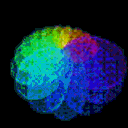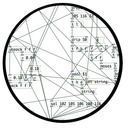There's an experimental 64-bit version of Pd
This is really orthogonal to 64-bit OSC timetags. This version just uses 64-bit floats as the underlying type for float atoms and samples. It does not magically implement the missing OSC typetags. Also, let's please call this the "double-precision" version, as "64-bit" typically refers to the CPU architecture.
Actually, there is no reason why Pd's [oscformat] and [oscparse] could not support the h (= int64) and d (= float64) typetags for sending/parsing OSC message. Of course, single-precision Pd would need to round the values down to 32-bit floats, but double-precision Pd could keep the precision (at least for 64-bit floats; 64-bit integers may still lose some lower bits when converted to 64-bit float atoms).



